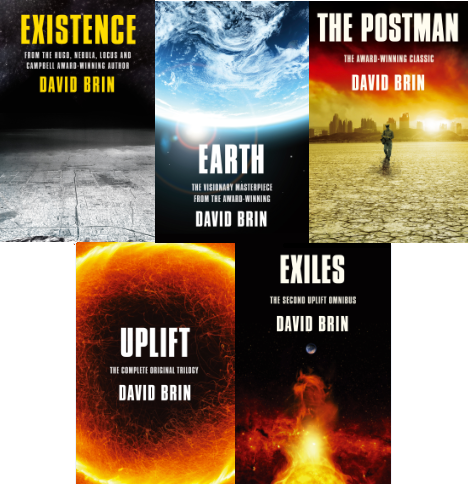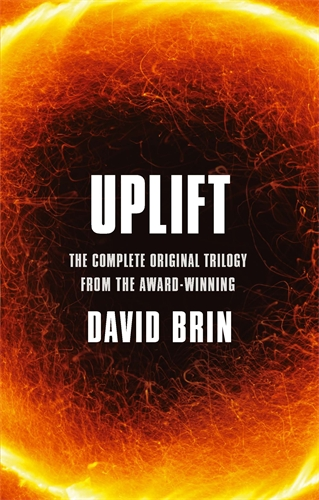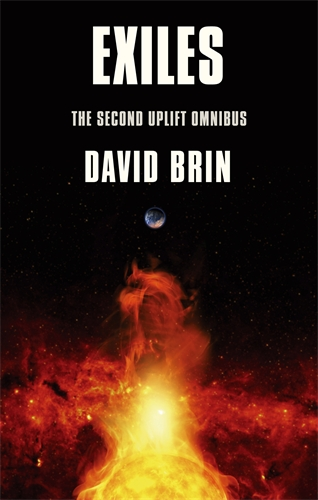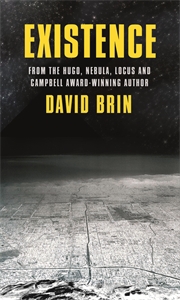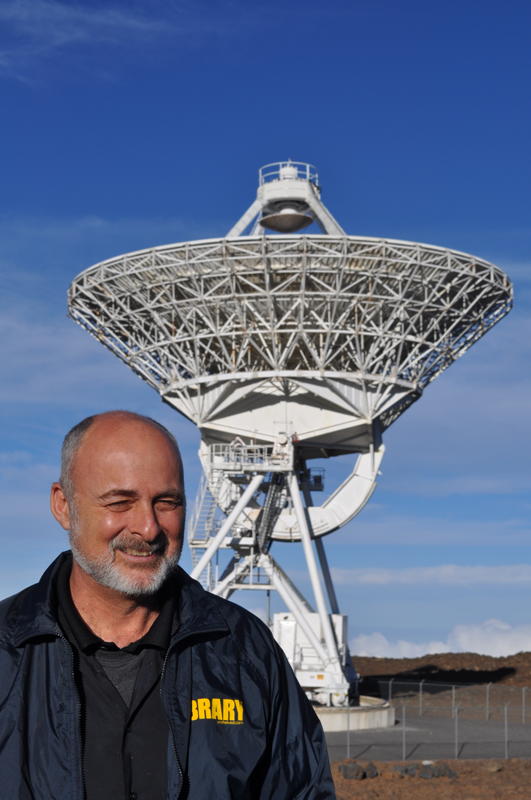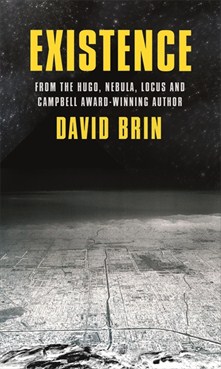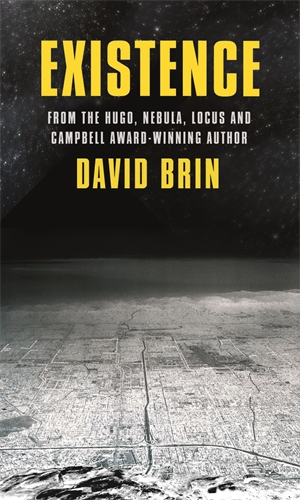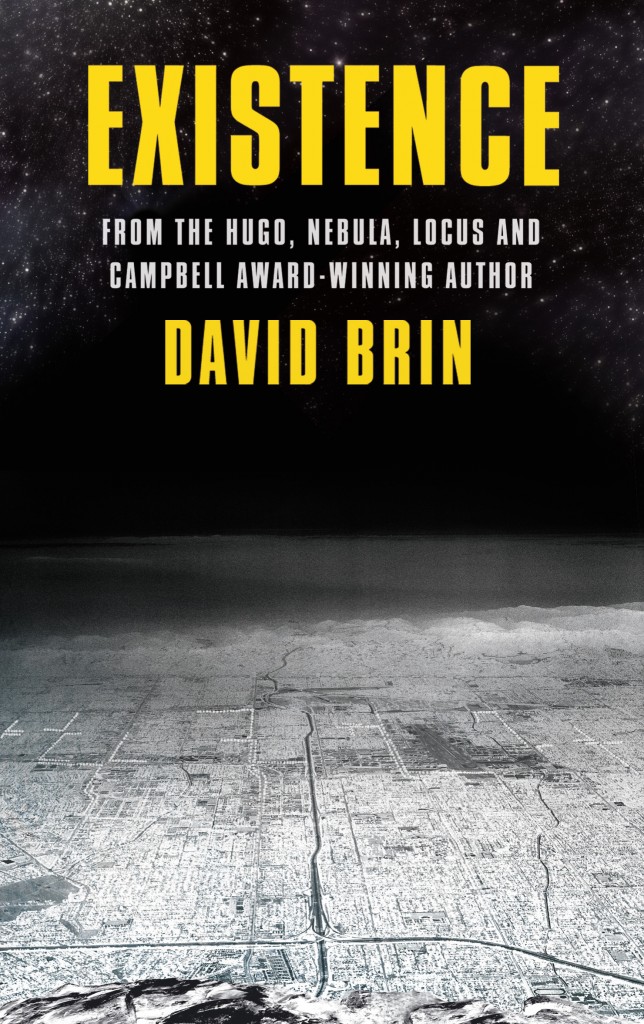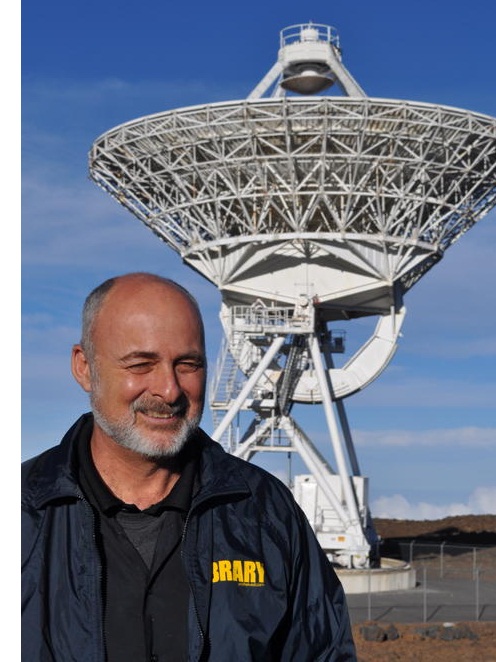EXILES, Uplift and a message to any lurking aliens out there
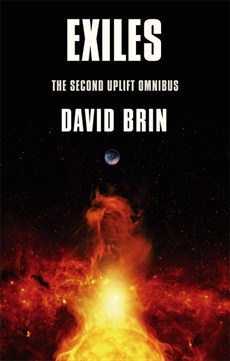 Today Orbit UK is proud to release EXILES (UK | ANZ), an omnibus edition of the critically acclaimed science fiction trilogy, the Uplift Storm series by David Brin. It contains BRIGHTNESS REEF, INFINITY’S SHORE and HEAVEN’S REACH.
Today Orbit UK is proud to release EXILES (UK | ANZ), an omnibus edition of the critically acclaimed science fiction trilogy, the Uplift Storm series by David Brin. It contains BRIGHTNESS REEF, INFINITY’S SHORE and HEAVEN’S REACH.
These novels, like all books in the multi-award winning Uplift universe, revolve around the theme of biological “uplift” – which is where one species genetically enhances another species to make it sentient.
The intergalactic civilisation called the Five Galaxies is made up of a multitude of sentient races, with each species having its own “patron” race, responsible for uplifting it. But it’s a mystery why humanity seems to be the only species in the universe that hasn’t been uplifted by another patron race . . .
This theme seems to reflect many fundamental questions we have about our own existence. Why do we appear to be alone in the universe as the only form of intelligent life? And if there are other intelligent life forms out there – how will they view us?
Being an active member of SETI, the organisation which conducts scientific research on life in the universe, David Brin is very qualified to talk on this subject. I thought Orbit readers might be interested to read David Brin’s recent post “An Open letter to Alien Lurkers”. It’s his plea to intelligent alien life forms to make sure they don’t get the wrong end of the stick about us humans. To paraphrase a few of the messages within this great piece:
—> If you’ve been monitoring humans’ TV, radio and internet for years now – please be reassured: we’re not all THAT crazy, violent or extreme. Our fiction exaggerates our actions, and our news just covers the bad stuff. But most of us are actually quite relaxed, stable, peaceful beings.
—> If you’re seeing us as dangerous competitors – please don’t. The more civilised we get, the more we realise that competition and cooperation aren’t mutually exclusive. We might be able to add something to the galactic community – and a little bit of competition is always healthy. So please can we talk about it before you either overlook us or blow us to smithereens?
—> If the reason you haven’t contacted us yet is because you’re waiting for us to reach some milestone level of cilivisation, then please could you give us a helping hand with this? We’re very keen to learn!
Trust me, it’s very worth checking this brilliant piece out.
EXILES (UK | ANZ) is the final in a number of beautiful reissues we’ve produced for some of David’s most prestigious and best-known titles, to celebrate the release of his recent masterpiece EXISTENCE (UK | ANZ). All of these books can be seen below in their full glory.

